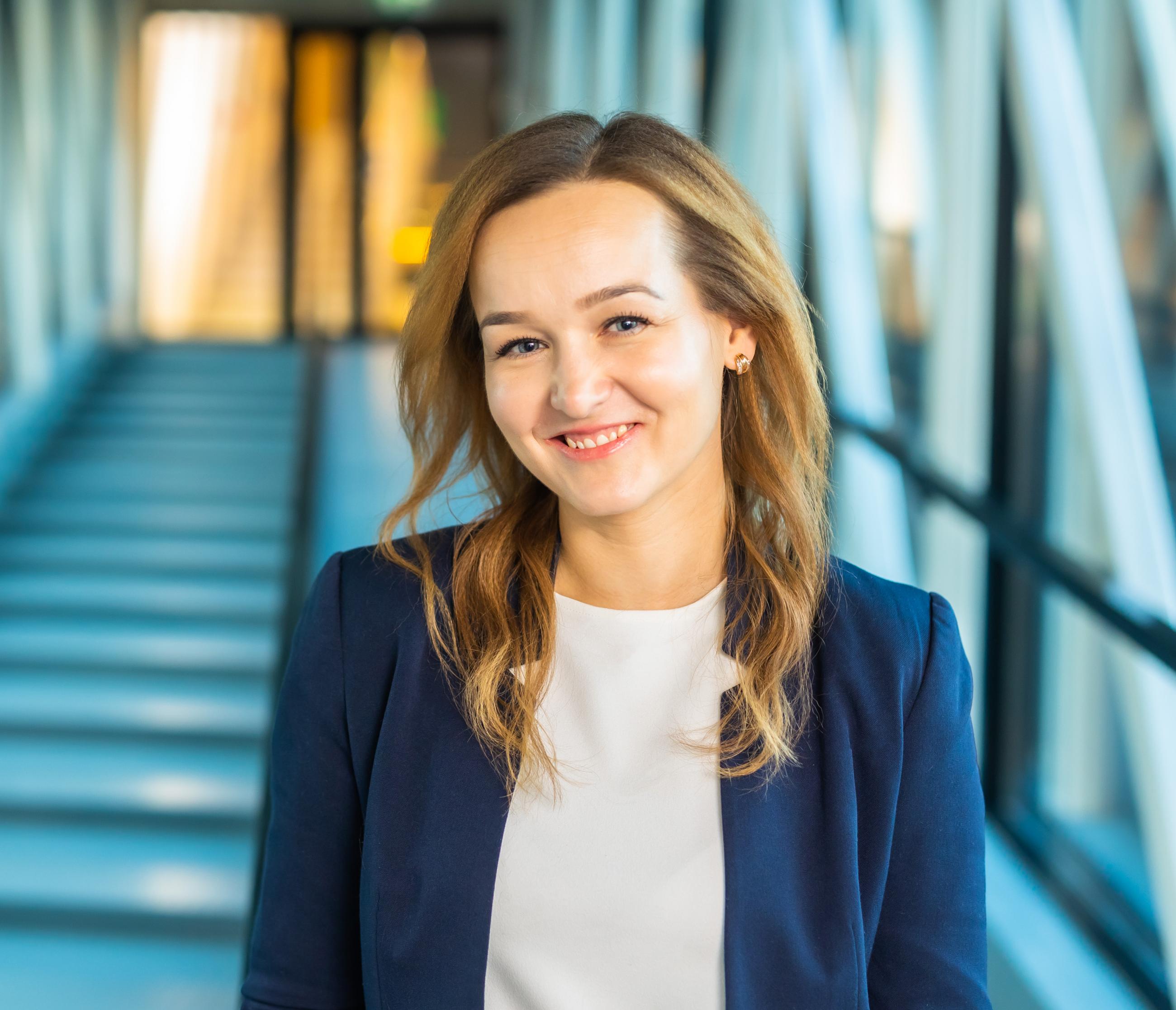Helin Kask: I worked on my thesis every day, even if only a little at a time
Helin Kask defended her doctoral thesis entitled ‘English-Estonian code-copying in Estonian blogs and vlogs’ at the School of Humanities of Tallinn University in May this year.

How did you come up with this topic during your studies?
I became interested in sociolinguistics in general during my Bachelor’s studies. Communication networks, language use, language dialects, language diversification. It seemed like a fascinating world that I wanted to know more about. This is why I was very pleased that the Master’s programme at Tallinn University included courses on language contacts, bilingualism, language politics, language diversification, etc. I arrived at a more specific research topic in the final year of my Master’s degree. My supervisor, Professor Anna Verschik, lectured us on language contacts. A discussion preceded one of the lectures about the sociolinguistic situation in Estonia, linguistic landscapes and language contacts, in particular Russian-Estonian ones. The conversation led me to learn that English-Estonian language contacts haven’t been widely studied, and I had the sudden realisation that this is something I would like to investigate further. I reacted immediately and contacted my supervisor the same day. That’s where our cooperation began. Gradually, the Master’s thesis evolved into a doctoral thesis.
Writing a doctoral thesis is a huge undertaking and definitely needs constant self-motivation. What’s your trick? How were you able to consistently work on it to achieve a successful final result?
My good friend Elina Bone, a PhD student at Tallinn University, was a tremendous support to me while writing the analytical review. We had an agreement that she would keep checking in and asking how the writing was going. After all, it’s quite embarrassing to reply that you have done nothing. Afterwards, I would write to Elina each night as I made my final revisions and let her know what I had accomplished that day before turning off the computer. I found it quite thrilling, and now I can do the same for her.
It is said that when it comes to working out, the hardest part is the journey from the sofa to the door. But when it comes to writing a thesis, the hardest part is the journey from the sofa to the computer. Having young children and a busy family life makes it difficult to write in peace and quiet. I set a simple goal for myself: to spend at least half an hour on my thesis every day. If I don’t feel inspired to write, I’ll at least tidy up the references list. That half-hour turns into an hour and then into two; it flies by when you’re already sitting at your computer. All in all, committing to write every day, even a little, worked best for me.
There’s only one thing left to say. My grandmother was by far my biggest supporter. She was immensely proud of me, always asking how my thesis was coming along. The first thing I did when I officially submitted my work for the final defence was call my grandmother to tell her the exciting news – she was overjoyed. However, that was to be our last conversation, as a week later she passed away, completely unexpectedly. Often, it seems as though there is plenty of time, that the work will be completed one day. But the old saying is right: never put off till tomorrow what can be done today.
Please describe a memorable or funny event that happened while you were writing your thesis.
There have been many great moments, but the most memorable have been the conferences. It is extremely enriching and highly inspiring to be immersed in an environment steeped in science, to talk face-to-face with renowned scientists, to listen to their presentations, to discuss them in depth. One of the most vivid memories I have is when a recognised and respected contact linguist came to hear me speak at a conference. When they saw another well-known contact linguist there, the first one began to resent the second, “How come you came to listen to this presentation but didn’t show up for mine?” Later, however, he praised my presentation.
How is your research going to change the world?
Although it may or may not make a world of difference, I hope I have been able to open up English-Estonian language contacts for Estonians in a new way. My work describes English-Estonian language contacts without making any judgement and analyses the main reasons why young people use English. We are accustomed to talking about the impact of English mainly in terms of language management: what are the (negative) effects of English on Estonian and how to avoid them. There is talk of young people's semilingualism, bias towards English and the survival of Estonian. In fact, multilingualism is nothing new for Estonians. For example, in the first half of the 20th century, German and Russian were important languages in Estonia in addition to Estonian. Despite everything, the Estonian language has survived. Attitudes, identities and a desire to pass on the Estonian language are what matter.
What are the most important values and beliefs that you live by?
Taking care of your loved ones, being empathetic, enjoying the little things and taking care of your health are just a few examples. However, the most important thing is to be honest, always and in every situation, but above all with yourself.
Please tell us about a book that you recently read and would recommend to others. Why would you recommend it?
On St Martin’s Day, I read the book Estonian proverbs and riddles. It was both entertaining and educational.